In today’s hyper-competitive e-commerce landscape, success hinges on more than just offering great products at competitive prices. To thrive, e-commerce businesses need to leverage a CRM (Customer Relationship Management) system, which has become the defining factor for business growth and sustainability.
Enter Customer Relationship Management (CRM) systems—a powerful tool that is no longer a luxury but a necessity for thriving in the e-commerce space. Let’s delve into why e-commerce businesses can’t afford to overlook CRMs and how these systems are reshaping the industry.
1. Understanding Your Customers at Scale
Every successful business begins with understanding its customers. In e-commerce, where interactions happen online and often without direct human contact, gaining insights into customer behavior is challenging.
A CRM system serves as a centralized database that stores every interaction a customer has with your brand—from browsing history and purchase patterns to communication preferences and support requests. This holistic view enables businesses to:
- Segment customers based on behavior, preferences, and demographics.
- Identify high-value customers for tailored campaigns.
- Spot trends and adapt strategies accordingly.
For example, a CRM can help an online clothing store identify which products are popular among specific age groups or regions, allowing for more targeted marketing efforts.
2. Enhancing Personalization with CRM for E-commerce Businesses”
In a world flooded with ads and generic emails, personalization is the key to standing out. Customers no longer respond to “one-size-fits-all” marketing. They expect offers, recommendations, and communications tailored to their unique needs.
CRMs enable businesses to:
- Send personalized email campaigns based on browsing or purchase history.
- Recommend products that align with a customer’s preferences.
- Offer discounts or loyalty rewards specific to individual customers.
For instance, an online beauty retailer can use a CRM to remind a customer when it’s time to reorder their favorite skincare product, accompanied by a personalized discount code. This not only boosts sales but also fosters customer loyalty.
3. Improving Customer Support with CRM for E-Commerce Businesses
Exceptional customer service is non-negotiable in e-commerce. A single negative experience can lead to lost business and damage to your reputation. CRMs streamline customer support by consolidating all customer interactions, making it easier for support teams to address issues quickly and effectively.
With a CRM, support agents can:
- Access the customer’s order history and past interactions.
- Resolve issues faster with relevant context.
- Offer proactive support, such as notifying customers about delays or providing updates on their orders.
This level of service builds trust and encourages repeat business.
4. Boosting Marketing ROI Using CRM for E-Commerce Businesses
E-commerce businesses often allocate significant budgets to marketing campaigns, but without data-driven insights, these efforts can yield disappointing results. A CRM bridges the gap by tracking the effectiveness of campaigns and offering insights to optimize performance.
Here’s how CRMs help improve marketing ROI:
- Analyze which campaigns drive the most sales.
- Identify underperforming strategies and adjust them.
- Measure customer acquisition costs and lifetime value.
For example, an online electronics store can use CRM data to determine which social media platform generates the highest sales and allocate more resources accordingly. Explore best practices for tracking campaign effectiveness with this resource from Mailchimp.
5. Streamlining Operations and Efficiency
E-commerce involves multiple moving parts—inventory management, order processing, customer interactions, and more. A CRM integrates with other tools and platforms to ensure seamless operations.
Benefits include:
- Automating repetitive tasks like email follow-ups.
- Synchronizing inventory updates with customer purchases.
- Reducing manual errors in order management.
When operations run smoothly, customers experience fewer delays, and businesses save time and money.
6. Retaining Customers and Reducing Churn
Acquiring a new customer can cost five times more than retaining an existing one. Yet, many e-commerce businesses focus heavily on acquisition while neglecting retention. A CRM shifts the focus by:
- Tracking customer satisfaction and identifying churn risks.
- Enabling loyalty programs and exclusive offers for repeat buyers.
- Providing tools for consistent follow-ups and re-engagement campaigns.
For instance, if a customer hasn’t purchased in months, a CRM can trigger an automated email with a personalized discount to bring them back.
7. Adapting to Mobile-First Trends
With the rise of mobile shopping, e-commerce businesses must cater to customers who shop on the go. CRMs ensure that mobile interactions are as effective as desktop ones by:
- Optimizing mobile email campaigns.
- Providing real-time notifications for abandoned carts.
- Enabling mobile-friendly customer support solutions.
This approach ensures that businesses don’t miss opportunities to engage with customers, regardless of the device they use.
8. Staying Competitive in the E-Commerce Landscape
The e-commerce industry is crowded, and competitors are constantly innovating. Businesses that fail to adapt risk being left behind. CRMs give e-commerce brands a competitive edge by:
- Offering insights that help anticipate customer needs.
- Keeping businesses agile with data-driven decisions.
- Facilitating omnichannel strategies to reach customers across multiple platforms.
A well-implemented CRM becomes a strategic asset that drives growth, innovation, and customer satisfaction.
A Necessity, Not an Option
For e-commerce businesses, thriving without a CRM in today’s digital-first world is nearly impossible. From understanding and personalizing customer interactions to improving support, boosting marketing ROI, and streamlining operations, CRMs empower businesses to meet and exceed customer expectations.
Investing in a CRM is not just about adopting new technology—it’s about future-proofing your business. As the e-commerce landscape continues to evolve, having the right CRM in place will ensure your business stays ahead of the curve, delivering exceptional experiences that turn one-time buyers into lifelong customers.
Ready to supercharge your e-commerce business with a CRM? Visit CRM Group Consulting to explore tailored solutions that fit your needs. Contact us today and take the first step toward transforming your customer experience.

